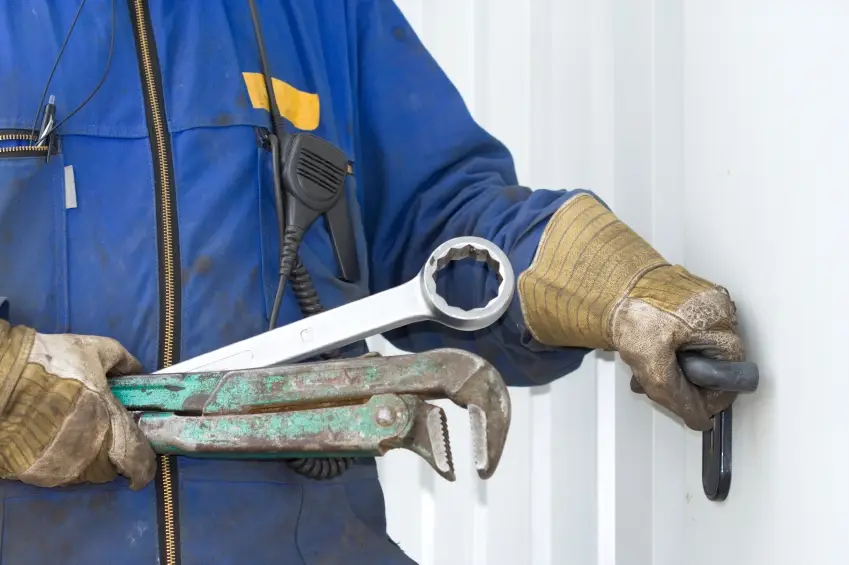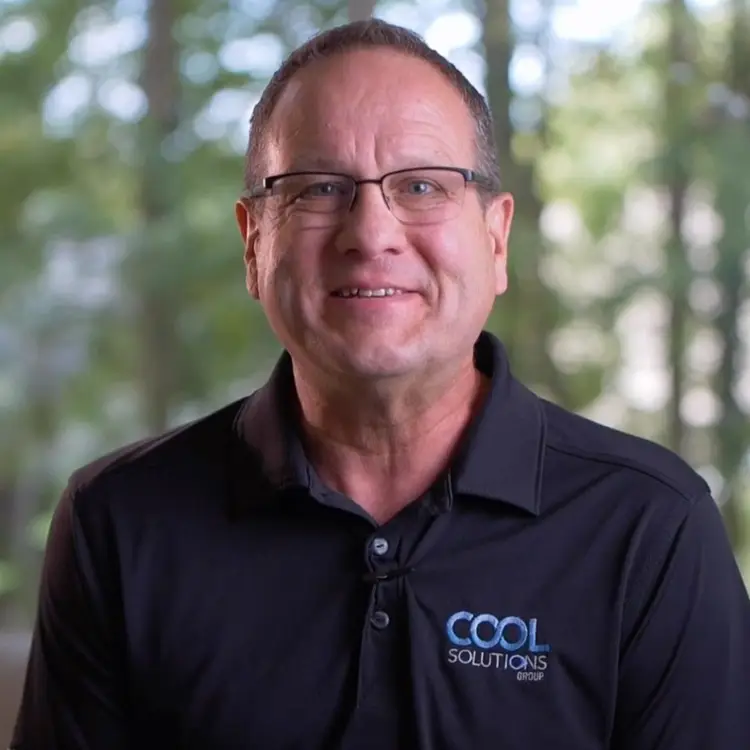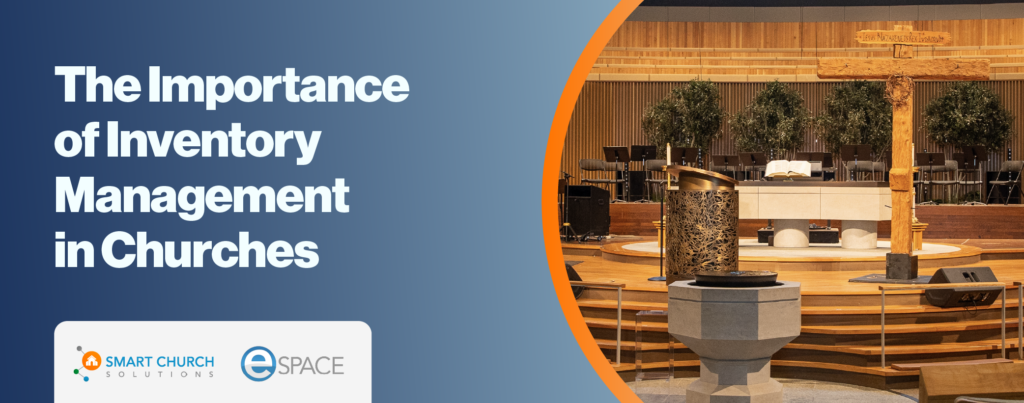If you’re responsible for the facility management at your church, you know how complex of a responsibility that can be. It seems like there’s always more to do than there are hours in a week, and the larger your facilities, the more complex the maintenance needs can get.
Today we want to talk about preventative maintenance. Decay and decline are inevitable. It’s part of living under the curse. It’s incredibly important to do what we can to prevent decay and decline in our facilities. Preventative maintenance (or preventative management) is one of the best ways to do this and is vital for any facility.
Let’s look at a few ways that preventative maintenance can help you as well as how Smart Church Solutions can help you stay on top of it all.
Preventative Maintenance Saves Your Facility Time and Money
The first and most important point here is that spending the necessary time and money on preventative maintenance will actually save your team both time and money in the long haul. Let’s dive into how this works.
One of the biggest reasons church leaders and facility management staff avoid taking care of preventative maintenance is the time and money that’s involved. Many churches have a reputation for being frugal, which is an admirable trait. But preventative maintenance is simply not an area where “being frugal” is a good thing.
When churches skimp on or skip preventative maintenance entirely, they’re inviting larger expenses and greater losses of time and productivity. Why? Because stuff is going to break— that’s a guarantee. The question is whether you want to wait until it breaks to fix it, or whether you want to get in front of the problem.
Preventative maintenance lives up to its name: it’s maintenance intended to prevent further decay or damage. It spots problems as they’re developing rather than waiting until something fails entirely. In many cases, the fix is cheaper before a component outright fails. It’s also easier on your team when you can plan for these small repairs rather than drop everything for a large emergency repair.
Let’s use a concrete example. Keeping your commercial HVAC system maintained isn’t cheap. If you’re not thinking with the long-range in view, you might be tempted to skip this expense. But you know what costs even more than regular maintenance? Emergency repairs on a Saturday night. Similarly, think of the opportunity cost of having unusable facilities on a hot summer Sunday.
In this scenario, by avoiding preventative maintenance, you actually incurred significant additional costs. You paid for an emergency after-hours repair or had to cancel services, or potentially both.
There are countless scenarios like this one, and in each one, the answer is the same. By performing preventative maintenance you’ll save both time and money.
Scheduling Preventative Maintenance Saves Headaches and Avoids Conflict
Deciding to do preventative maintenance is a great first step, but it does require planning. The whole nature of preventative maintenance requires that it be done regularly. Scheduling your preventative maintenance tasks can save headaches and help you avoid conflict.
No one on your facility management staff wants to have a preventative maintenance task sprung on them with no notice. Nor do they want to have to figure out how to shoehorn another task into a week that’s already full. Without effective scheduling, you’ll end up causing headaches for your staff.
You may even create scheduling conflicts. A last-minute decision to do some preventative maintenance can lead to conflict with others, too: if people were planning to use a space that suddenly becomes unavailable because of facility choices, you’re probably going to get some feedback.
Smart Church Solutions Work Order & Asset Management Tools
If you’re looking for a tool that will help you schedule your preventative maintenance and work orders effectively and efficiently, check out the Work Order & Asset Management tools from Smart Church Solutions. Our easy-to-use software suite helps you organize and schedule all the work requests and preventative maintenance needs that your church facilities have. (There are many other features there, too, and we’ll cover some of those later on.)
Using our Work Order & Asset Management tool, you can create, assign, and track work orders (or preventative maintenance) with ease. You can keep track of who’s doing what, including which tasks are assigned to others in the organization outside of facilities and which tasks are reliant on external vendors.
One of the biggest wins for preventative maintenance scheduling is our auto-reminder tool. Once you create and input the schedule rotation for various tasks, our software can automatically remind and even assign tasks to the appropriate parties.
We also provide a mobile app that’s tied into our eSPACE Work Order & Asset Management tool. You can finally ditch those paper work orders and loose notes that staff members frequently misplace. Everything can run through one centralized database, and all interested parties can access that information in the cloud from mobile or desktop.
Freebie: Preventative Maintenance Checklist
If you’re just getting started setting up a thorough, organized preventative maintenance schedule, it can be hard to know where to start. Check out our awesome freebie, the Preventative Maintenance Checklist. You can use this tool as a starting point for scheduling preventative maintenance tasks throughout the year.
Of course, your church facility may not have everything on the list, and you may want to add your own tasks that include buildings or facilities you’re responsible for. Our checklist is an Excel file, so it’s fully customizable to your situation!
Preventative Maintenance Is Being a Good Steward of What’s Been Entrusted to You
We’ve already talked about some practical reasons why preventative maintenance is the right choice and shared some resources for how to schedule it effectively, but there’s more to it than just the practical side. We’d be remiss if we didn’t consider what the scriptures have to say about this topic.
Jesus had a lot to say about being a good steward. A steward is someone who cares for what’s been entrusted to them. Jesus talked about stewards in the parable of the talents, where three men were given varying sums of money. Two of them were good stewards of that money, investing it and making a profit. One was afraid to do the same and buried the money to keep it safe.
When the master returned to the stewards, he rewarded the two but called the one a “wicked and slothful servant” and took away even the money he had been given.
One lesson from this parable is that God expects us to manage well what he entrusts to us. As churches and facilities managers, you’ve been entrusted with the care of buildings and property. Managing it well and keeping it from decay is part of being a good steward. And preventative maintenance is a part of managing facilities well.
Tracking Inventory Keeps You Organized and Efficient
Smart Church Solutions is proud to offer additional capability within our work order & asset management suite of tools. One of the available tools is an inventory management system. You can manage your inventory using our powerful tools. Use these tools to assign items to specific work orders. Your inventory numbers will automatically adjust when the work order is complete.
Using these tools will help you keep better track of your current resources, reducing the chance that you’ll run out of a needed piece of equipment in a crucial moment.
Organize Your Church Facility’s Equipment
Equipment tracking is another part of our software suite that can help you get better organized. Nothing’s more frustrating than having a team ready to start a project only to realize that a needed piece of equipment is tied up somewhere else. You can be done losing track of which piece of equipment is tied up in which job, and you can more effectively schedule projects and resources using our equipment tracking function.
You can also track warranty information in a single, centralized location as a part of this feature.
Wrapping Up
At this point, we hope you’ll agree with us about the importance of preventative maintenance for church facilities. It’s a matter of good stewardship.
Could you use some better tools to help you stay on top of scheduling and executing preventative maintenance or other facility needs? Smart Church Solutions is here to help. Contact us today to learn more about partnering with Smart Church Solutions for your facilities management needs.








